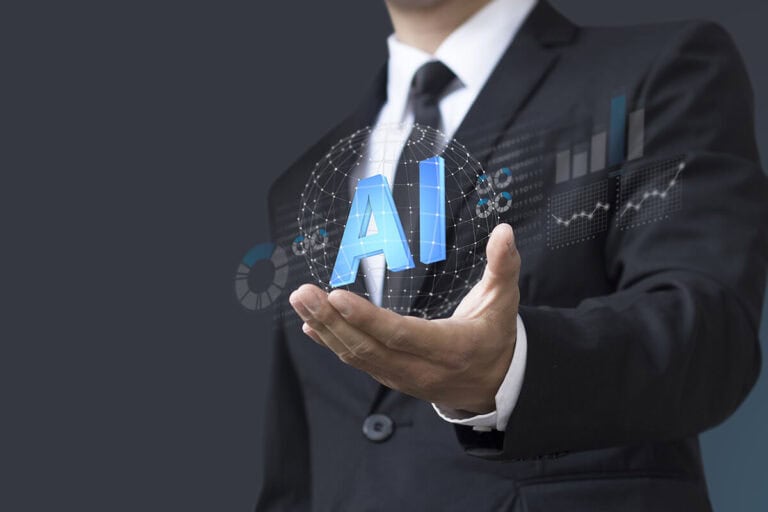What separates a regular customer from a loyal brand advocate? Great customer service, that’s what. As such, it should be no surprise that many forward-thinking companies are already experimenting with artificial intelligence (AI) technology to improve their processes and service their customers better.
Table of Contents
TogglePrimarily, AI is currently being deployed in customer service as a means to either augment, or in some cases replace human agents. The primary goals of these initiatives are to improve the customer experience, and reduce costs associated with human service agents.
While it is of course true that AI and automation technologies are not yet sophisticated enough to perform all of the tasks currently undertaken by human representatives, many routine consumer requests are simple enough for AI to handle without human input. Perhaps more importantly, AI can deliver a level of responsiveness to an influx of customer requests that isn’t humanly possible – or at least isn’t possible without spending a fortune on staffing.
According to the latest figures from the Bureau of Labor Statistics, there are over 2.7 million Americans employed as customer service representatives, with a mean annual wage of $35,650. What’s more, IBM estimates that 265 billion customer support tickets and calls are made globally every single year, racking up a monumental $1.3 trillion in customer service costs. Any technology that that can improve the efficiency of these representatives or reduce the need for so many of them would potentially produce significant business savings. In fact, IBM also cites a BI Intelligence figure suggesting that introducing AI solutions – such as chatbots – can reduce a business’s spend on customer service by up to 30%.

(Image source: chatbotsmagazine.com)
Augmenting Customer Service
Salary savings are of course a big benefit, but AI doesn’t necessarily need to completely replace human representatives in order to be useful. In fact, there are many ways in which AI can work in tangent with human agents, streamlining processes that make humans more efficient, or otherwise freeing up call center employees from routine tier-1 support requests so they can focus on more complex tasks.
Vala Afshar, Chief Digital Evangelist for Salesforce, recently predicted that “The line-of-business that is most likely to embrace AI first will be customer service – typically the most process-oriented and technology-savvy organization within most companies.” Salesforce also believes that deploying AI for customer relationship management (CRM) will increase global business revenues by $1.1 trillion by 2021, and is heavily invested in its Einstein solution, which builds a layer of AI into the Salesforce platform to help businesses better connect with their customers.

(Image source: salesforce.com)
While certainly a big player, Salesforce is by no means the only company developing AI solutions for customer service. Let’s take a look at what else is out there to see how AI could quickly transform customer service into a better, faster and smarter version of itself.
Immediate Responses
This is one of the most common applications of AI in customer service today. With AI-powered chatbots, companies can deliver immediate responses to customers via messaging services, which isn’t always possible when relying on a team of human agents alone.
This is especially valuable for firms that do business across global time zones. It would be simply impossible – not least from a cost perspective – even for large organizations to staff around-the-clock service representatives that could cover every corner of the globe in real time.
Immediate responses also mitigate customer abandonment. It’s no secret that it costs more to acquire a new customer than it does to retain an existing one, so ensuring that all service requests are responded to immediately greatly improves the chances of boosting retention rates.
In October 2018, global leader in customer engagement software Freshworks launched “Freddy”, an “Omnibot” AI engine that enhances the sales, support and marketing capabilities for businesses of all sizes.
Freddy is designed to make the life of human agents and end users much simpler. The omnichannel bot learns from records of both successful customer interactions and any new guides that the organization publishes. Freddy then automatically replies to common queries across email, chat, voice-calls and social media with the appropriate content from the customer’s knowledge base.

(Image source: freshworks.com)
The bot learns quickly, and builds responses to help customers find answers faster without the need to interact with a human agent – though if a customer does need human support, Freddy converts the query into a ticket, and immediately transfers the customer to an agent for an answer.
“Traditional enterprise AI platforms have been too intimidating and complex to understand and implement. They certainly haven’t been easy to use for customers or their representatives at the front lines of customer service, preventing businesses from achieving the full benefits of AI,” said Founder and CEO of Freshworks, Girish Mathrubootham. “Freddy removes that complexity and frustration by delivering timely customer information for representatives and instantly answering questions anytime or anywhere customers need support.”
Augmented Messaging
Aside from giving your company an active 24/7 customer service presence, there are solutions emerging where the chatbot model is evolving to give real-time assistance to human agents.
One example is LivePerson’s LiveEngage platform. With this solution, simple customer service questions are handled directly by the bot, but as soon as the conversation becomes too complicated, the bot simply hands the conversation off to a human. Once the human agent has completed the complex task, he/she can then pass the conversation back to the bot once more to finish off the conversation.
According to the case studies published on the LivePerson site, this system allows one agent to handle multiple interactions at once, improving efficiency, and ensuring that no customer is left waiting.
(Video source: youtube.com)
Enhanced Customer Service Phone Calls
Bots for text messages is one thing, but AI is harder to deploy for augmenting voice-based communications. For starters, it’s significantly more challenging for a computer system to accurately decipher spoken words than written words. Add to this background noise that comes through on calls, thick accents, dialects, poor pronunciation, colloquialisms and complex speech patterns – it all makes it extremely difficult for an AI application to make sense of what’s being said, and in any way offer possibilities for improvements.
Yet, even in the face of these significant challenges, there are companies that are utilizing AI to enhance the work of human representatives answering phone calls.
Cogito is one such example. The startup has developed a real-time conversation-analysis tool based on deep learning and behavioral science. The AI system listens to conversations for content, tone, and change in the speaker’s pitch and volume, to gain real-time insight into how the customer is feeling and how the call is going. From there, it provides real-time suggestions for improvements to the human agent handling the call. Check out the video below to see it action.
Real-time Insights
AI systems have instant access to lots of customer-centered data points, and can also detect repetitive problems, identify patterns, and predict what’s causing problems for a certain customer. This makes them more knowledgeable than human agents, simply because they can access relevant customer data quicker.
In order to make this data valuable to customer service agents in action, they need to be able to access it for themselves in real-time. Salesforce’s Service Cloud Einstein is one platform designed to deliver on this front, and contact centers can use its various tools to unlock deep customer insights to deliver a transformational customer service experience.

(Image source: salesforce.com)
With Service Cloud Einstein, contact center supervisors are empowered with real-time, omnichannel insights and AI-powered analytics. Data, such as agent availability, queue lengths and wait times are all collected by the system, which then suggests actions to be taken for improvements. The system can even predict customer satisfaction levels and make specific customer service recommendations. For example, a service supervisor at an appliance manufacturer might get an alert saying that there is an increase in calls coming from owners of a particular refrigerator model. The data tells the supervisor that all cases involve refrigerators made during a certain period at one particular factory. The supervisor can then proactively alert other potentially impacted customers and set solutions in motion, thusly combatting what might otherwise be a much larger customer service issue.
Final Thoughts
AI is set to have a massive impact on customer service over the coming years, and the number of tools and solutions being made available to companies is growing all the time. From autonomously handling low-level enquiries to assisting human agents in all aspects of their work, AI is reshaping the customer service landscape, meaning many companies will soon be able to provide even better service at lower costs.
Summary:
AI and Customer Service
It should be no surprise that many forward-thinking companies are already experimenting with artificial intelligence (AI) technology to improve their processes and service their customers better. Primarily, AI is currently being deployed in customer service as a means to either augment, or in some cases replace human agents. The primary goals of these initiatives are to improve the customer experience, and reduce costs associated with human service agents. While it is of course true that AI and automation technologies are not yet sophisticated enough to perform all of the tasks currently undertaken by human representatives, many routine consumer requests are simple enough for AI to handle without human input. AI can deliver a level of responsiveness to an influx of customer requests that isn’t humanly possible. IBM estimates that 265 billion customer support tickets and calls are made globally every single year, racking up a monumental $1.3 trillion in customer service costs. Technology that that can improve the efficiency of these representatives or reduce the need for so many of them would potentially produce significant business savings. In fact, IBM also cites a BI Intelligence figure suggesting that introducing AI solutions – such as chatbots – can reduce a business’s spend on customer service by up to 30%.





